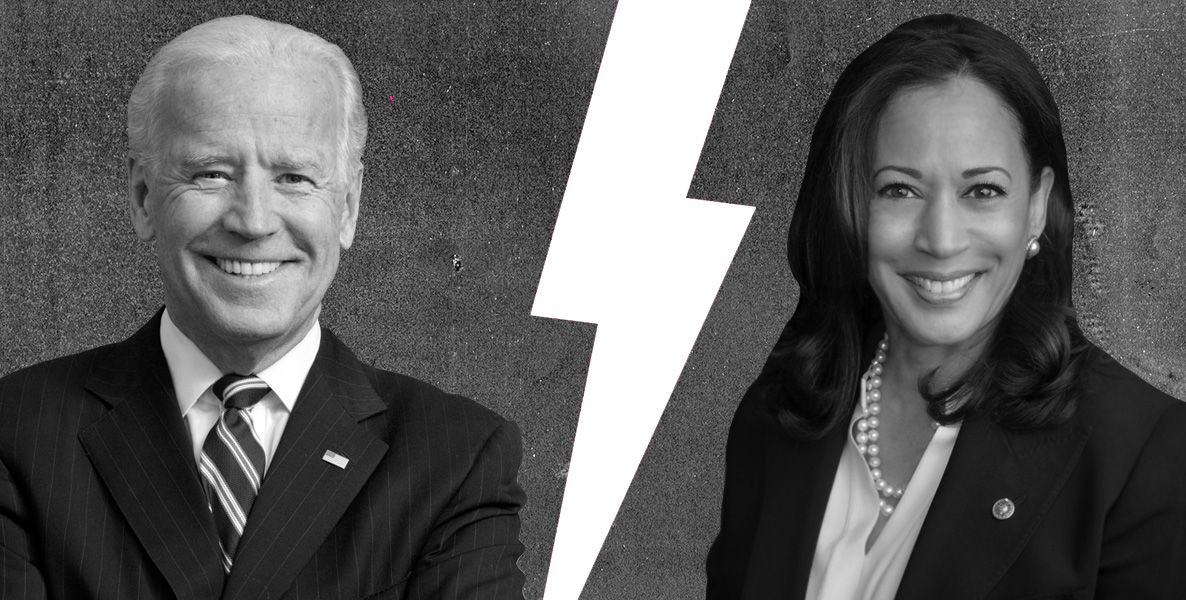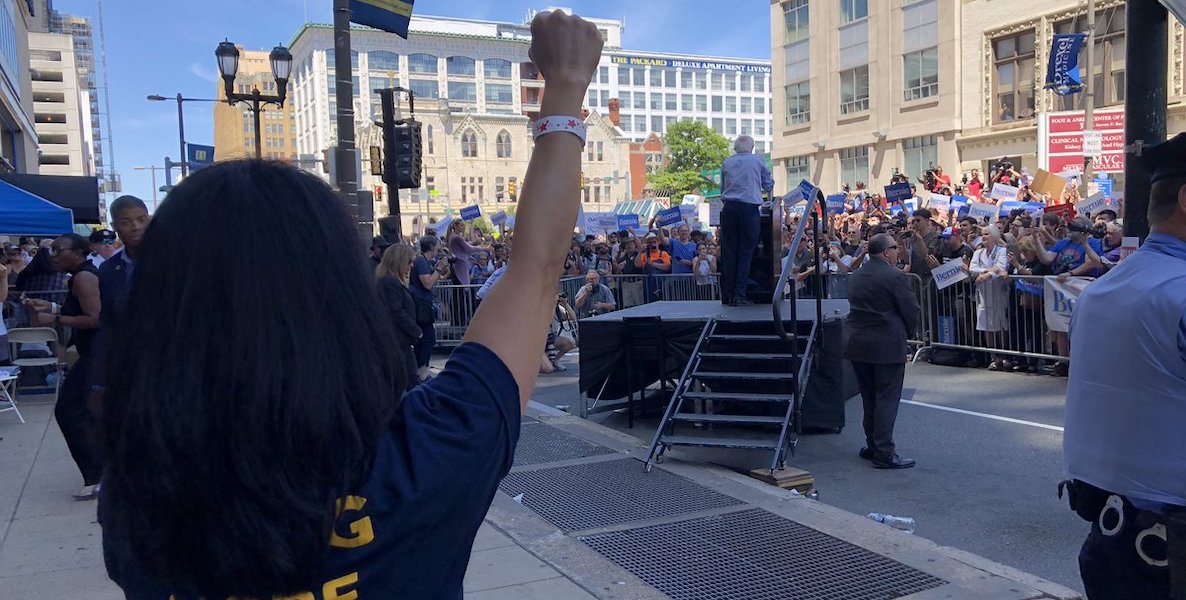Remember Captain Renault in Casablanca? The local constable is shocked, just shocked to learn that gambling is going on in Rick’s Cafe, even as he is handed his winnings:
Well, when it comes to the outrage we’re currently hearing from elected officials over the closing of Hahnemann Hospital, we’ve got a whole lotta Captain Renaults in our midst. Locally, the protests over the shuttering of Hahnemann have been fueled by the populist soundbites of Mayor Kenney and Councilwoman Helen Gym. Kenney and Governor Wolf released a statement that read, in part: “The situation at Hahnemann University Hospital, caused by CEO Joel Freedman and his team of venture capitalists, is an absolute disgrace and shows a greed-driven lack of care for the community.”

Prefer the audio version of this story? Listen to this article in CitizenCast below:

Gym, speaking at last weekend’s NetRoots Nation, the annual progressive echo chamber, brandished a “Save Hahnemann” T-shirt and followed suit. “And stop private equity from bankrupting our health system and profiting off of selling our hospitals like Hahnemann,” she said. “And I’ll say this, that message is not just to Trump, that’s to our Democratic governor and our legislators as well. You will not be complicit.”
The issues facing Hahnemann were not caused by an act of God. The hospital’s fate has actually been a slow motion demise that any competent city government should have identified and been working on for years.
Sanders came to Philly yesterday to add his voice to the populist chorus, saying, “This is not a complicated issue. It is a question of getting our priorities right.” This after he and Gym penned an Inquirer op-ed: “By separating the health-care business from the real estate, Mr. Freedman has positioned himself to sell off the land for a fortune while allowing the hospital itself to wither away,” they write. “He seems fine trading the lives of Hahnemann’s patients and the people who care for them for luxury condos or a hotel, so long as there’s a profit to collect along the way.”
This is not in any way to defend Freedman. But his firm bought Hahnemann only two years ago after no one else would. That’s because the hospital’s fiscal woes were not exactly a state secret, as a simple Google search documents. Its losses of $3 to $5 million per month, its debt of $300 million? Not a new thing. Which begs the question of all of our Captain Renaults, those scoring political points now by racing to the microphones and pointing fingers: What did you know about the precarious state of Hahnemann’s finances, and when did you know it? And, besides fixing blame, what have you done to try and find a solution?
![]()
The fact is that hospitals are closing all across America, particularly in rural settings, where many who voted for Donald Trump are finding themselves an hour or more away from a functioning emergency room. But the same is also happening in urban areas; 50 years ago, Detroit had 42 hospitals. Today it has four. In 1995, Philadelphia had 19 hospitals with obstetric units. Ten years later, only 10 remained open.
What’s behind the trend? A confluence of factors that the overly simplistic local political narrative conveniently avoids. Hospitals that are succeeding derive significant revenue from privately insured patients—that is, those with private insurance essentially pay for those without insurance, those who are underinsured, and those who are covered by Medicaid and Medicare, both of which reimburse hospitals at roughly 85 cents on the dollar. Moreover, University-affiliated hospitals tend to charge more for their services than community hospitals because they are also funding research and instruction, which has made them less attractive to Obamacare’s exchange-based insurance networks.
![]()
I’m no expert on health care policy, and wading into the literature gives me a headache. But a couple of things are undeniable. First, as Wharton’s Lawton Burns and Drexel’s Robert Field make clear in a fascinating Knowledge at Wharton podcast posted last week, what we’re experiencing now was predicted nearly 40 years ago in the 1981 book, Can Hospitals Survive: The New Competitive Health Care Market. “That book was prescient…” says Burns. “The hospital inpatient business is a flat-liner at best. The future growth of the hospital business is not in inpatient care; it’s outpatient care. So, this is just part of a wider trend.”
Second: Across the nation, the urban hospitals that are most at risk, like Hahnemann, all service a high percentage of uninsured, Medicare and Medicaid patients, and all have aging facilities, high debt, and hardly any scale over which to spread overhead expenses.
Once upon a time in America, proactive public officials worked to address such complex policy conundrums, but no longer. Nowadays, it’s all about wracking up political points in our increasingly breathless news cycles.
With that as background, it becomes clear that, while Joel Freedman may be a bottom-line obsessed corporate vulture who sees value in the land upon which Hahnemann sits, there’s a systemic issue at play that suggests it’s more complicated than Sanders and Gym would have us believe. Once upon a time in America, proactive public officials worked to address such complex policy conundrums, but no longer. Nowadays, it’s all about wracking up political points in our increasingly breathless news cycles.
![]()
Two years ago, when Tenet Healthcare put Hahnemann and its shaky finances on the market, did Kenney and Gym convene a task force of stakeholders—university presidents, business, civic and community leaders—to read the handwriting on the wall and work toward a response? Hardly. Both Kenney and Gym just ran for reelection two months ago; did you hear anything from them about the fate of Hahnemann Hospital during the campaign?
The Philly Shrug style of political leadership is to react, usually in the most superficial of ways, rather than to anticipate and problem-solve. What could Kenney and Gym have done two years ago? Well, in keeping with the tenets outlined by Bruce Katz and the late Jeremy Nowak in The New Localism, they could have practiced horizontal leadership. They could have convened stakeholders and looked at innovations that elsewhere have helped to stave off Hahnemann’s ultimate fate. They could have studied the reforms in Baltimore called “global budgeting,” which change the way in which hospitals receive funding. Rather than being paid per procedure or visit, hospitals are given lump sums—a global budget—that tie to certain outcomes. They could have looked to case studies where civic and business leaders have stepped up to save local hospitals, as in Jacksboro, Texas, 30 miles from Fort Worth.
This begs the question of all of our Captain Renaults, those scoring political points now by racing to the microphones and pointing fingers: What did you know about the precarious state of Hahnemann’s finances, and when did you know it? And, besides fixing blame, what have you done to try and find a solution?
Of course, it just might be that there is no precedent for what Hahnemann, and the city of Philadelphia, confronts, not in terms of job loss (some 2,500 workers) or the further contraction of emergency services for the most vulnerable, which means even longer wait times at the city’s remaining ERs. But it would have been nice to have leaders proactively investigating the issue a few years ago. Instead, we’ve gotten ideological talking points from those we ought to look to for solutions.
In their op-ed, Sanders and Gym devote all of one pro-forma paragraph to anything prescriptive. “For the short term, city, state, and federal officials must work with all affected stakeholders to find a solution that keeps Hahnemann’s doors open for good,” they write, though it appears that ship has sailed. “For the long term, we must create a Medicare for All system that would guarantee health coverage to all people. Under that system, we are going to invest in health-care facilities that operate in underserved areas and we are going to end the culture of corporate greed that is denying health care to millions of people in the richest country on Earth.”
Problem is, even a cursory review of the literature suggests that their panacea, Medicare For All, due to its low reimbursement rate, promises to exacerbate the problem. The issues facing Hahnemann were not caused by an act of God. The hospital’s fate has actually been a slow motion demise that any competent city government should have identified and been working on for years. Its doctors, nurses and, especially, patients deserve better than what they’ve gotten from the Joel Freedmans of the world, sure, but they were also owed more than the cynical scoring of political points by elected officials who have perfected the art of, Captain Renault-like, feigning shock.
Photo via Helen Gym Verified account @HelenGymAtLarge





